The world of real estate marketing has undergone a massive transformation over the past few decades. Gone are the days when newspaper ads, flyers, and word-of-mouth were the only ways to sell properties. Today, digital marketing dominates the industry, offering real estate professionals innovative tools to reach a global audience, generate leads, and close deals faster than ever before.
In this comprehensive guide, we’ll explore how real estate marketing has evolved, the latest digital strategies that are reshaping the industry, and how agencies like AroundTown Realty leverage these advancements to stay ahead of the competition.
The Traditional Roots of Real Estate Marketing
Before diving into the digital revolution, it’s essential to understand where real estate marketing began. Traditional methods were heavily reliant on:
- Print Advertising – Newspapers, magazines, and brochures were the primary mediums for listing properties.
- Billboards & Signages – High-traffic areas featured large property ads to catch the attention of passersby.
- Open Houses & Networking – Face-to-face interactions and physical property tours were the backbone of sales.
- Direct Mail Campaigns – Postcards and letters were sent to potential buyers in targeted neighborhoods.
While these methods worked in their time, they were limited by geography, high costs, and slow response times. The digital age changed everything—making marketing faster, more efficient, and far more measurable.
The Digital Revolution in Real Estate Marketing
With the rise of the internet, real estate marketing shifted dramatically. Here’s how technology reshaped the industry:
1. The Rise of Real Estate Websites
The first major shift was the transition from print listings to online property portals. Websites like Zillow, Realtor.com, and local agency sites (like AroundTown Realty) became the go-to platforms for buyers and sellers.
Key Benefits:
- 24/7 Accessibility – Buyers could browse listings anytime.
- High-Quality Visuals – High-resolution images and virtual tours replaced grainy newspaper photos.
- SEO-Driven Traffic – Optimized websites ranked on Google, bringing in organic leads.
2. Search Engine Optimization (SEO) for Real Estate
SEO became a game-changer in real estate marketing. Agencies that optimized their websites with the right keywords (like “luxury homes in [city]” or “best real estate agents”) started ranking higher on Google, attracting more traffic.
Effective SEO Strategies Include:
- Keyword Research – Targeting high-intent search terms.
- Local SEO – Optimizing for “near me” searches with Google My Business.
- Content Marketing – Blogs, guides, and market reports to establish authority.
3. Social Media Marketing – The New Frontier
Platforms like Facebook, Instagram, LinkedIn, and YouTube have become indispensable for real estate professionals.
Why Social Media Works:
- Visual Storytelling – Instagram & Facebook Reels showcase properties dynamically.
- Hyper-Targeted Ads – Facebook Ads can target users by income, location, and interests.
- Community Building – Engaging content (tips, market trends) keeps followers interested.
4. Virtual Tours & Augmented Reality (AR)
One of the most significant advancements in real estate marketing is the use of 3D virtual tours and AR. Buyers can now explore properties from their phones without physical visits.
Impact of Virtual Tours:
- Saves Time – No need for multiple in-person showings.
- Global Reach – International buyers can tour Indian properties remotely.
- Higher Engagement – Interactive experiences lead to faster decisions.
5. AI & Chatbots for Lead Generation
Artificial Intelligence (AI) has automated many aspects of real estate marketing:
- Chatbots – Answer buyer queries 24/7 on websites.
- Predictive Analytics – AI identifies high-potential leads based on behavior.
- Automated Email Campaigns – Personalized follow-ups without manual effort.
6. Programmatic Advertising & Retargeting
Unlike traditional ads, programmatic advertising uses AI to place property ads in front of the right audience at the right time. Retargeting keeps your listings in front of users who’ve shown interest but haven’t converted yet.
7. Video Marketing: The Power of Visual Storytelling
In today’s fast-paced digital world, video marketing has become one of the most effective tools in real estate marketing. Studies show that properties with video listings receive 403% more inquiries than those without.
Why Video Works in Real Estate
- Higher Engagement – Videos capture attention faster than text or images.
- Emotional Connection – Walkthroughs and drone footage help buyers visualize living in the home.
- SEO Benefits – Google prioritizes video content, boosting search rankings.
Types of Real Estate Videos That Convert
- Property Walkthroughs – High-quality tours with professional narration.
- Neighborhood Guides – Showcasing local amenities, schools, and attractions.
- Client Testimonials – Building trust through satisfied buyer stories.
- Live Q&A Sessions – Engaging potential buyers in real-time on Facebook or Instagram.
Platforms to Leverage for Video Marketing
- YouTube – The second-largest search engine (after Google).
- Instagram Reels & TikTok – Short, engaging clips for younger buyers.
- Facebook Live – Great for virtual open houses.
Pro Tip: AroundTown Realty uses 4K drone footage to highlight luxury properties, giving buyers a breathtaking aerial view of homes and neighborhoods.
8. Email Marketing: The Underrated Lead Nurturing Tool
While social media and SEO grab headlines, email marketing remains one of the highest ROI channels in real estate marketing.
How to Build a High-Converting Email List
- Lead Magnets – Offer free home valuation reports or buyer guides in exchange for emails.
- Website Pop-ups – Encourage visitors to subscribe for exclusive listings.
- Open House Sign-ups – Collect emails during property visits.
Best Email Campaigns for Real Estate
✅ New Listing Alerts – Notify subscribers of fresh properties.
✅ Market Updates – Monthly reports on price trends and inventory.
✅ Personalized Recommendations – AI-driven suggestions based on buyer preferences.
Case Study: AroundTown Realty increased conversions by 27% by segmenting their email list into first-time buyers, investors, and luxury seekers, sending tailored content to each group.
9. The Role of Big Data & Predictive Analytics
Big data is transforming how real estate professionals price properties, predict trends, and target buyers.
How Data is Used in Real Estate Marketing
- Pricing Optimization – Algorithms analyze comps to suggest the best listing price.
- Lead Scoring – Identifying high-intent buyers based on online behavior.
- Market Forecasting – Predicting which neighborhoods will appreciate fastest.
Example: AroundTown Realty uses predictive analytics to advise sellers on the best time to list, maximizing sale prices.
10. Influencer & Community Partnerships
Collaborating with local influencers, bloggers, and real estate experts can amplify your reach.
How to Leverage Influencers
- Sponsored Content – Have influencers tour and promote your listings.
- Guest Blogging – Partner with finance or lifestyle bloggers for property features.
- Community Events – Sponsor local events to build brand trust.
Success Story: A luxury condo project in Mumbai saw a 40% increase in inquiries after partnering with a well-known interior design influencer.
11. Mobile Optimization: Reaching Buyers on the Go
With over 60% of property searches happening on mobile, having a fast, responsive website is non-negotiable.
Key Mobile Optimization Tips
- AMP (Accelerated Mobile Pages) – Ensures instant loading.
- Click-to-Call Buttons – Makes it easy for leads to contact agents.
- Mobile-Friendly Virtual Tours – 360° views that work seamlessly on phones.
Did You Know? Google penalizes slow-loading sites, hurting your real estate marketing efforts. AroundTown Realty’s website loads in under 2 seconds, ensuring no lost leads.
12. The Growing Importance of Online Reputation
92% of buyers read online reviews before choosing an agent. Managing your digital reputation is crucial.
How to Build a Strong Online Reputation
- Encourage Google Reviews – Happy clients = social proof.
- Respond to All Feedback – Even negative reviews (professionally).
- Showcase Testimonials – Feature video reviews on your website.
AroundTown Realty’s Strategy: They send a personalized thank-you email after every sale, gently requesting a Google review—resulting in 100+ 5-star ratings.
13. Hyperlocal Marketing: Winning Your Neighborhood
While global reach is great, hyperlocal marketing helps dominate your target area.
Tactics for Hyperlocal Success
- Geotagged Social Media Ads – Show listings only to nearby users.
- Local SEO – Optimize for “Realtor in [City]” keywords.
- Community Sponsorships – Support local sports teams or events.
Result: AroundTown Realty ranks #1 for “best real estate agents in [City]” thanks to hyperlocal SEO.
14. The Rise of Podcasts in Real Estate Marketing
Podcasts are booming, and real estate professionals are leveraging them to share expertise.
How to Use Podcasts for Lead Gen
- Host Your Own Show – Discuss market trends, investment tips, etc.
- Guest Appearances – Join finance or business podcasts.
- Repurpose Content – Turn podcast episodes into blog posts or social clips.
Example: A Bangalore-based agent gained 500+ leads from a podcast episode on “Hidden Gem Neighborhoods.”
The Future of Real Estate Marketing
The digital transformation isn’t slowing down. Here’s what’s next:
1. Voice Search Optimization
With smart speakers like Alexa and Google Home, optimizing for voice search (“Find homes under 1 crore in Bangalore”) will be crucial.
2. Blockchain for Secure Transactions
Blockchain could revolutionize property transactions with smart contracts, reducing fraud and paperwork.
3. Metaverse & Virtual Real Estate
Virtual property buying in metaverse platforms like Decentraland is already happening—could physical real estate marketing follow?
4. Hyper-Personalization with Big Data
Using data analytics, agencies can deliver personalized property recommendations based on user behavior.
How AroundTown Realty Excels in Digital Real Estate Marketing
At AroundTown Realty, we stay ahead of the curve by integrating the latest digital strategies:
- SEO-Optimized Listings – Our properties rank high on Google.
- Engaging Social Media Campaigns – We showcase homes through videos and virtual tours.
- AI-Powered Chat Support – Instant responses to buyer inquiries.
- Data-Driven Marketing – We target the right audience with precision.
Whether you’re buying, selling, or investing, our cutting-edge real estate marketing ensures you get the best deals with minimal hassle.
Final Thoughts: Embrace the Digital Shift
The evolution of real estate marketing has made buying and selling properties faster, smarter, and more efficient. Agencies that adapt to these changes—like AroundTown Realty—thrive in today’s competitive market.
Ready to experience the future of real estate? Visit AroundTown Realty today and let’s find your dream home—or sell your property—with the power of digital marketing!
FAQs About Real Estate Marketing
- What is the most effective digital marketing strategy for real estate?
A mix of SEO, social media ads, and virtual tours works best for lead generation and conversions. - How important is SEO in real estate marketing?
Extremely important—90% of buyers start their search online, making SEO crucial for visibility. - Can social media really help sell properties?
Yes! Platforms like Instagram and Facebook help showcase properties to millions of potential buyers. - What role does AI play in real estate marketing?
AI automates lead scoring, chatbots, and personalized marketing, making the process faster and more efficient. - How can I market my property digitally without a big budget?
Focus on local SEO, Facebook Marketplace, and high-quality virtual tours—they’re cost-effective yet powerful.









